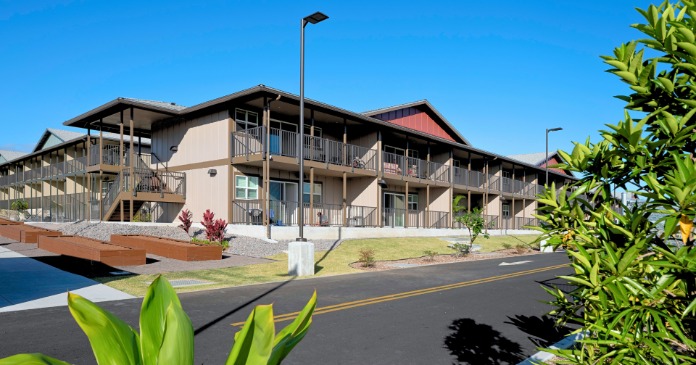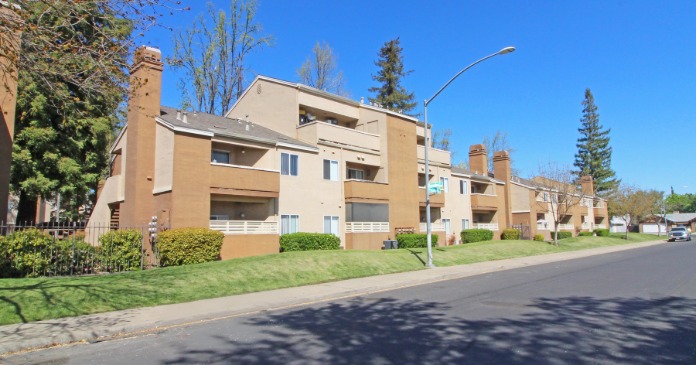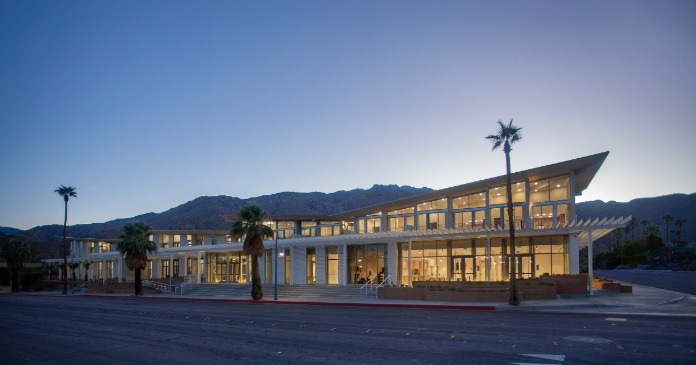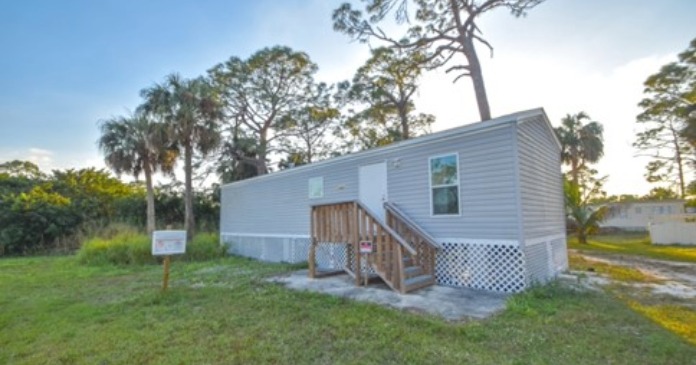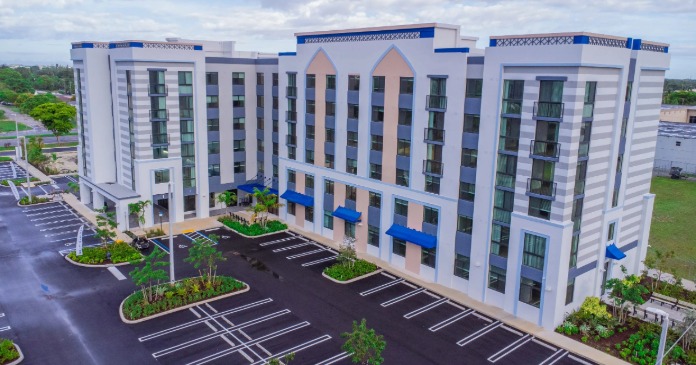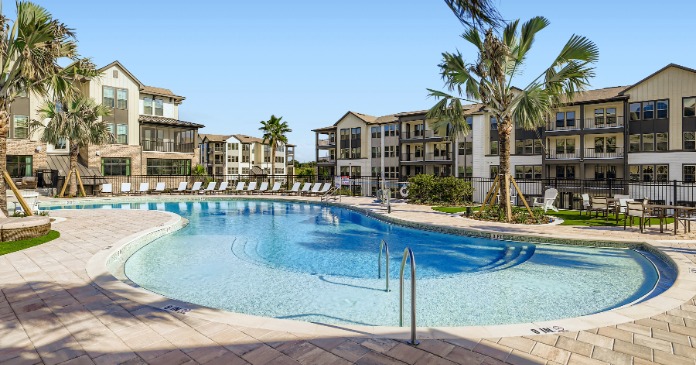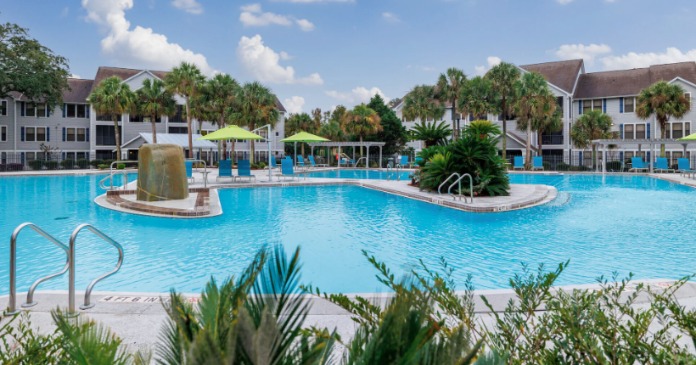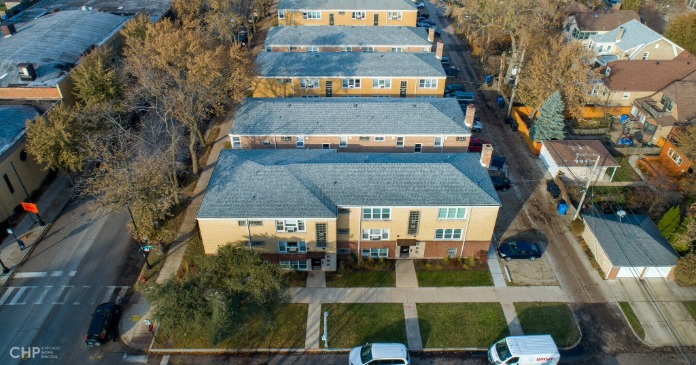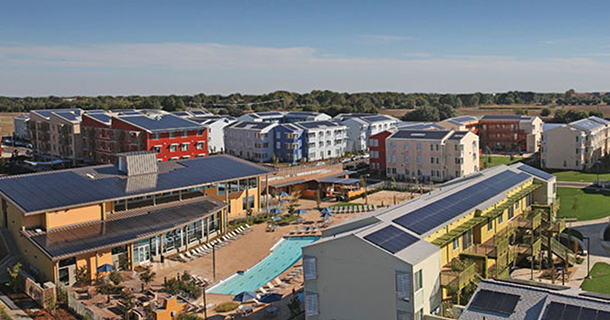
The $300 million West Village campus project opened to much fanfare two years ago, riding on the hope that it would serve as a model for future construction.
Touted as the largest planned “zero net energy” community in the nation, West Village elicited great interest from politicians and newspapers alike. Millions of taxpayer dollars went into the private project, including $17 million from U.C. Davis for infrastructure and $2.5 million from the California Energy Commission.
University officials and developer Carmel Partners acknowledged some shortcomings, but they said the project would ultimately live up to its name.
“We hit production on the head, but consumption is higher than we anticipated,” said Sid England, the university’s assistant vice chancellor for sustainability.
On-site solar panels generate most of the electricity for the 1,980 students, faculty and staff across three apartment complexes. Officials expect West Village to one day house 3,500 people. About 350 single-family homes will also be built, but Carmel Partners has held off due to real estate market conditions.
According to a study by the Davis Energy Group, West Village is generating 87 percent of its own electricity, based on the reporting period from March 2012 to February 2013. Those numbers reflect only two apartment complexes that were operational at the time. The third complex, Solstice, came online in September.
Though West Village is producing the amount of energy that models predicted, resident consumption is significantly higher than expected, according to the report. Residents at The Ramble Apartments consumed 131 percent more energy than expected, while those at Viridian Apartments consumed 141 percent more, including 306 percent more in common areas.
The clubhouse, which includes a pool, gym and theater, exceeded consumption projections by 178 percent.
Obstacles involve predicting the consumption habits of college students. Previous modeling data came from units with families, which tend to consume less electricity, officials said.
“A four-person student apartment is not like a four-person household,” said Stephanie Martling, director of asset management at Carmel Partners. “There’s actually a lot more consumption for students living independently.”
“In some ways, it’s like individual families within the house. There are more computers, phones and iPads,” England said. Another problem lies in the way residents are charged for utilities. Energy costs are built into the rent rather than based on usage, eliminating one financial incentive to conserve. Residents also say high rental rates discourage conservation.
“I take pretty long showers and always keep the lights on,” said resident Meghna Bhatt, 21, who pays $850 a month for a single bedroom. “There’s no incentive to conserve. Of course they’re not getting zero net energy.”
England explained the complex cannot charge for electricity based on usage due to state utility regulations. Carmel Partners said it is exploring ways to encourage residents to reduce their usage.
“All I can say is that education can work,” England said.
West Village officials may face an education challenge because student communities typically have high turnover rates, and it may take time for new residents to adopt conservation measures. Fifty percent of tenants moved out of the complex in 2012, according to management.
“You don’t have everything aligned for you to make it work,” said Gerry Braun, an independent energy consultant based in Davis.
Braun pointed to conflicting missions at West Village as part of the hurdle in achieving zero net energy. Students can exercise at the gym, print for free at the business center or take a dip in the resort-style pool.
“This a real estate development. It has a purpose to not just house students, but also attract them,” he said. “Meanwhile, the university also has a sustainability goal.”
Since the complex opened, students have raised more concerns about operational issues than energy conservation. On Facebook and DavisWiki, residents have expressed frustration with persistent Internet outages and slow management response.
“Our Internet router was fried. It was ridiculous,” said Alexis Pantell, 23, who lives in The Ramble Apartments.
Martling acknowledged the issues and said management is looking into a longterm solution.
Despite the setbacks, England expressed hope that zero net energy is within reach. He predicted West Village would realize its goal in two years. A “biodigester” that would convert waste into energy is slated to go online in the next few months after being delayed.
“Nobody else is even trying this,” England said. “It’s pretty remarkable at 87 percent right out of the box.”
Author: Richard Chang, Sacramento Bee



